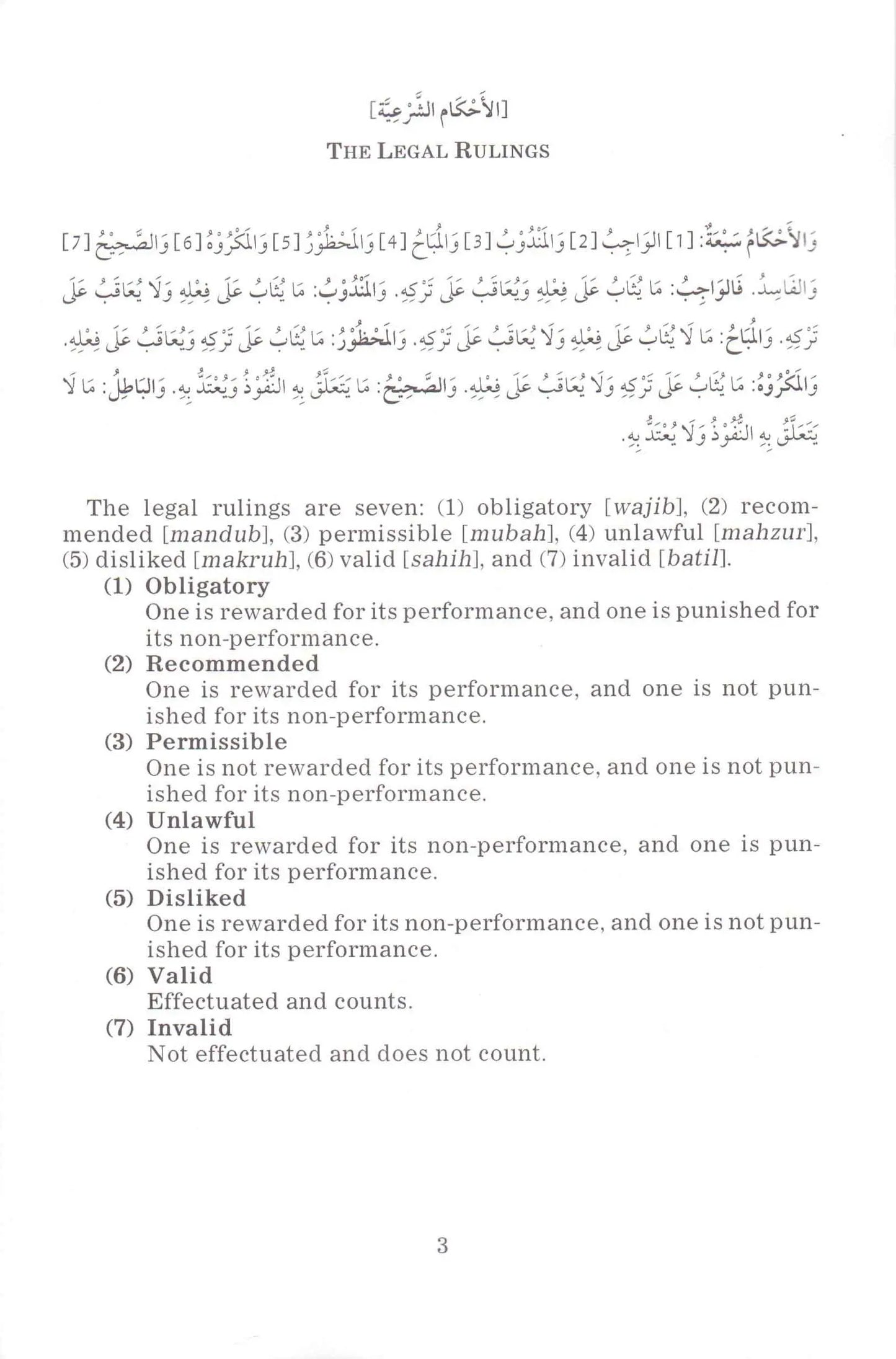The Sacred Law's sources are four: the Qur'an, the Sunnah, consensus, and analogy. Certainly, the Qur'an is the most authoritative. In fact, Zarkashi related from al-Qaffal al-Shashi that the Sacred Law is based on just one: the Qur'an; the others, like the Sunnah, clarify its legislation. The Qur'an is the final revelation; sent from God and delivered by the Prophet (SAW). Through its beautiful verses, it communicates Gods words, the divine legislation. In Islam, man does not legislate. The authority is exclusively God's right. The scholars' duty is to know his commands by studying the sources. When a scholar embarks on this task, he relies on a set of principles: Usul al-Fiqh. Many wrote books in this subject; al-Shafi'i was the first. The as-hab al-Wujuh followed his methodology because they found it reliable, the best possible means by which to understand the ultimate legislative source. Ilkiya al-Harrasi said: "I found al-Shafi'is School to be the strongest, closest to the right path, and most judicious. The insight of al-shafi'i, found in almost all his opinions and research, lifts one from mere guesswork and conjecture to knowing the truth with certainty." The as-hab al-Wujuh continued what Imam Shafi'i pioneered; from amongst them is the erudite jurist Ima al-Haramayn al-Juwayni. From the treasures his noble pen left behind, awaiting seekers of knowledge from all generations to come, that they may discover a treasure more precious than gold, is the introductory level textbook, al-Waraqat.
Imam al-Haramayn’s Waraqat is one of the most famous primers in the subject of usul al-fiqh. Rarely does a student study this subject without studying this text. Its compact size and lucid passages make it an excellent read to gain a solid understanding of the most crucial discourses in this most important science.
In this publication, between pages 2-44, the full Arabic original features along with its corresponding English translation. Then, starting on page 48, the English translation features along with explanatory notes that elucidate the text in detail. This work was compiled to serve as an introductory level reader into the subject of usul al-fiqh.
The work is set in Linotype’s Corona, with the Arabic featuring in Lotus and printed on premium cream FSC certified paper.
About Author:
Imam al-Haramayn Dhia' ul-Din Abd al-Malik ibn Yusuf al-Juwayni al-Shafi'i (1028—1085 CE; 419—478 AH) was a Persian Sunni Shafi'i faqih and mutakallim. His name is commonly abbreviated as Al-Juwayni; he is also commonly referred to as Imam al Haramayn, meaning "leading master of the two holy cities", that is, Mecca and Medina.
Al-Juwayni traveled to Mecca and Medina in search of an interim home. He taught and studied there in Hijaz for four years. During this time, al-Juwayni became hugely popularized because of his father's prominence in the scholarly world, and his exile. He gained a large following and was invited back to Nishapur by the founder of the Shafii Madrasa, Khwaja Nizam al-Mulk. Upon his return, Juwayni was appointed to teach the doctrine of the Ash'arites at the Nizamiyya Madrasa until he died in 1085CE (which would turn out to be about 26 years). Al-Juwayni spent his life studying and producing influential treatises in Muslim government; it is suspected that most of his works (below) came out of this period after his return from Mecca and Medina.
Al-Juwayni was the teacher of one of the most influential scholars in the Islamic tradition, particularly Sufism, al-Ghazali.
Al-Juwayni, a Sunni jurist and Mutakallim, or scholar engaged in the study of theological principles, spent his life deciphering between what a Muslim ought and ought not to do. He was said to be stubborn and accepting of any legal speculation whatsoever. His basic principle was that the law should not be left to speculation on any grounds. Rather, texts hold the answers to any possible legal debate in some capacity or another. He was a master of the Koran and Hadith texts in addition to being well versed in the particular school of Shafi'i and theological practices of the Ash'arite persuasion.
Al-Juwayni's primary work Kitab Al-Irshad Ila Qawati' Al-Adilla Fi Usul al-I'tiqad, his "guidebook to conclusive proofs for the principles of belief" helps to illustrate his doctrine. It is intended to outline exactly what has been proven, what can be proven and how those things can be proven. He focuses much of his attention on God and the fundamental Islamic principle that God is the only and all-powerful creator. He explains that we are often caught up in a temporally contingent existence, lost in continuity but that we should realize God's ability to interrupt this continuity at any time. Al-Juwayni focuses a similar amount of attention on legal methodology and is particularly concerned with the methods for discerning difficult debates.
About Translator:
Sheikh Ja'afar Mahmud Adam (February 12, 1960 - April 13, 2007), he was one of the greatest Islamic scholars and Imams of guidance ever witnessed by the teeming Muslim population living in Nigeria in particular and West Africa in general, in the early years of the 15th century of the Hijrah. The great Sheikh led a life full of hard work and sacrifice for the sake of his religion, which is typified by his zeal for the realization of a good Muslim society that cherishes the true teachings of Islam as taught by our noble Prophet Muhammad (sallallahu 'alaihi wa alihi wa sallam) and understood by the early pious Muslim generations.
The Sheikh passed his short life through disseminating the teachings of Islam by giving lessons, lectures, participating in seminars, issuing fatwas and other talks on various topics at different occasions. That was in addition to his great efforts in caring for students enrolled into Islamic and other disciplines.






